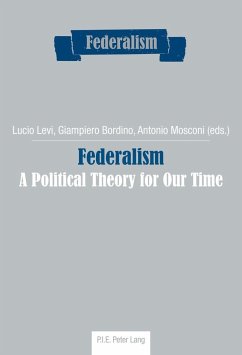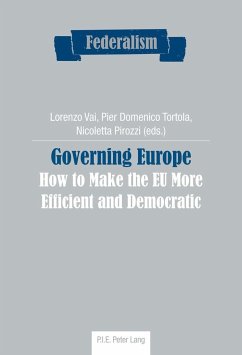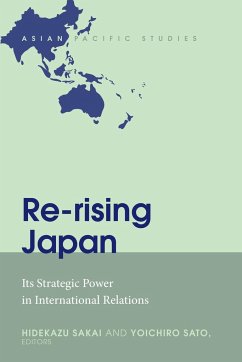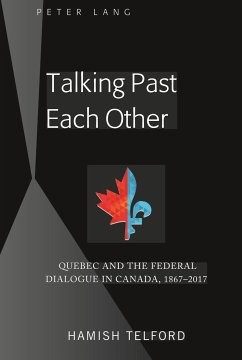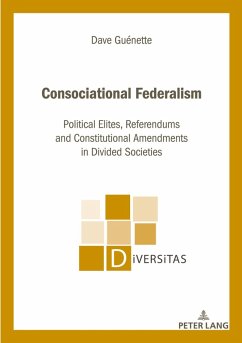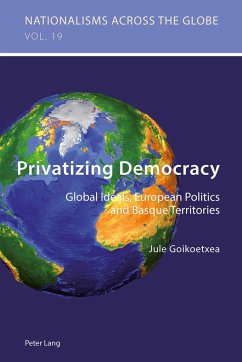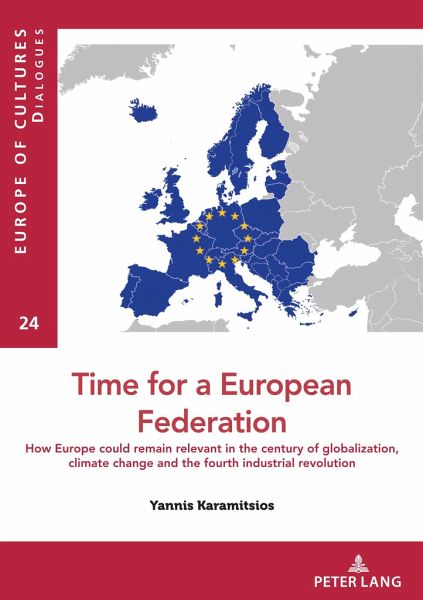
Time for a European federation
How Europe could remain relevant in the century of globalization, climate change and the fourth industrial revolution
Versandkostenfrei!
Versandfertig in 6-10 Tagen
20,35 €
inkl. MwSt.
Weitere Ausgaben:

PAYBACK Punkte
0 °P sammeln!
In the third decade of the 21st century, Europe is facing several serious challenges to its prosperity and freedom. Those include economic, financial and productive decline compared to the rest of the world, demographic stagnation, the effects of climate change, energy dependence from other continents and exclusion from technological innovations.This book proposes the creation of a federal European state that would replace and succeed the EU, its member states and other willing European countries. This is the only way for Europe to successfully address all those challenges and stay at centre s...
In the third decade of the 21st century, Europe is facing several serious challenges to its prosperity and freedom. Those include economic, financial and productive decline compared to the rest of the world, demographic stagnation, the effects of climate change, energy dependence from other continents and exclusion from technological innovations.
This book proposes the creation of a federal European state that would replace and succeed the EU, its member states and other willing European countries. This is the only way for Europe to successfully address all those challenges and stay at centre stage in world affairs, in the century of globalization, climate change and the fourth industrial revolution. But addressing Europe's existential challenges is not the only reason to move in that direction. A federal Europe would also become a major, self-sufficient geopolitical power, as strong as orstronger than the USA, Russia or China. It would be a model for other regional federations around the planet.
The book is not restricted to the analysis of why we need a federal European state but further suggests substantial policies for many different sectors: economy, banking, foreign affairs, defence, education, health, social security, immigration, human rights, agriculture, fourth industrial revolution, circular economy and climate - to name some of them. At the end, it presents a rough budget estimation to show that such a federation would not only be desirable but also be feasible.
This book proposes the creation of a federal European state that would replace and succeed the EU, its member states and other willing European countries. This is the only way for Europe to successfully address all those challenges and stay at centre stage in world affairs, in the century of globalization, climate change and the fourth industrial revolution. But addressing Europe's existential challenges is not the only reason to move in that direction. A federal Europe would also become a major, self-sufficient geopolitical power, as strong as orstronger than the USA, Russia or China. It would be a model for other regional federations around the planet.
The book is not restricted to the analysis of why we need a federal European state but further suggests substantial policies for many different sectors: economy, banking, foreign affairs, defence, education, health, social security, immigration, human rights, agriculture, fourth industrial revolution, circular economy and climate - to name some of them. At the end, it presents a rough budget estimation to show that such a federation would not only be desirable but also be feasible.




